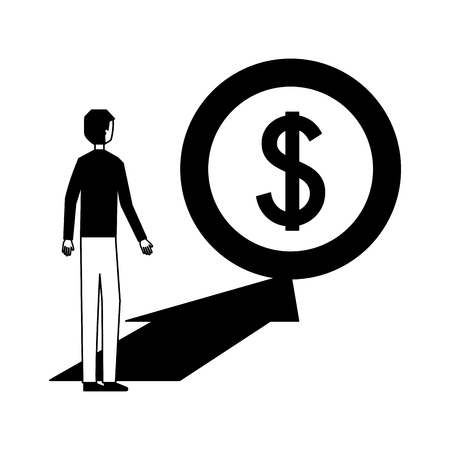1. Understanding the Emotional Impact of Credit Card Debt
The Hidden Burden of Credit Card Debt
Credit card debt is more than just a financial issue; it also takes a toll on your mental and emotional well-being. In the United States, many people rely on credit cards for everyday expenses or emergencies, but when balances add up, it’s easy to feel overwhelmed. The emotional side of debt often goes unnoticed, yet it can be just as challenging as the numbers themselves.
Common Emotions Linked to Credit Card Debt
| Emotion | Description | Why It Happens |
|---|---|---|
| Anxiety | Nervousness about paying bills or checking statements | Worrying about how to manage monthly payments and avoid late fees |
| Stress | Constant pressure about growing balances and interest rates | Juggling other financial responsibilities with debt payments |
| Shame | Feeling embarrassed or guilty about owing money | Cultural beliefs that equate debt with personal failure or lack of discipline |
Why These Feelings Are So Common in America
American culture often values financial independence and success, so carrying debt can feel like a personal shortcoming. Social media and advertising can also add pressure by showcasing lifestyles that seem out of reach. Many people keep their struggles private, which can make the emotional burden even heavier.
The Cycle of Negative Emotions and Debt
When you’re stressed or anxious about debt, it can be harder to focus on solutions or ask for help. This sometimes leads to making choices that increase debt or avoiding the problem altogether, creating a cycle that’s tough to break. Understanding these emotions is the first step toward finding support and starting on the path to recovery.
2. The Stigma Around Debt in American Culture
Understanding the Social Pressure
In the United States, credit card debt is extremely common, yet it carries a heavy social stigma. Many Americans feel embarrassed or ashamed to admit they have debt, even though millions are in the same situation. This pressure comes from deep-rooted beliefs about money, responsibility, and success.
Stereotypes and Misconceptions
People often think that having credit card debt means someone is irresponsible or bad with money. However, this is a big misconception. Debt can happen for many reasons—unexpected medical bills, job loss, or simply trying to manage day-to-day expenses as prices rise. Still, these negative stereotypes make it hard for people to talk openly about their struggles.
| Misconception | Reality |
|---|---|
| People with debt are careless spenders | Most people use credit cards for necessities, not luxuries |
| If you work hard, you wont have debt | Even full-time workers can struggle due to high living costs |
| Debt is always a sign of failure | Life events and emergencies can affect anyone’s finances |
The Pressure to “Keep Up”
American culture often emphasizes looking successful—even if that means spending beyond your means. Social media, advertising, and peer pressure make it seem like everyone else has their finances under control. This makes people hide their debt and avoid asking for help.
Why It Matters
This stigma stops many from seeking support or advice. People might delay talking to a financial advisor or joining support groups because theyre worried about being judged. Recognizing that these feelings are widespread is an important step toward overcoming them.

3. Breaking the Silence: Talking About Debt Openly
For many Americans, talking about money—especially debt—feels uncomfortable. There’s a deep-rooted stigma around credit card debt that can lead to shame, secrecy, and isolation. However, opening up about financial struggles is a powerful first step toward overcoming both the emotional and practical challenges of debt.
Why Open Conversations Matter
Keeping debt a secret often makes things worse. When you don’t talk about your financial stress, it can feel overwhelming and lonely. Honest conversations with trusted people can help reduce anxiety, build understanding, and create an opportunity for support. In fact, studies show that open communication about money leads to better financial habits and healthier relationships.
Tips for Talking About Debt With Family and Friends
| Tip | Description |
|---|---|
| Pick the Right Moment | Choose a time when everyone is calm and there are no distractions. |
| Be Honest But Gentle | Share your feelings honestly without blaming yourself or others. |
| Focus on Solutions | Talk about what you’re doing to manage debt and ask for advice or support if needed. |
| Set Boundaries | If certain topics are too sensitive, let others know what you’re comfortable discussing. |
| Listen as Much as You Share | Encourage your loved ones to share their experiences too—you might find you’re not alone. |
How to Start the Conversation
If you’re unsure how to begin, try saying something simple like, “I’ve been feeling stressed about my credit card balance lately and would appreciate your support.” Remember, you don’t have to share every detail—just enough to let others understand where you’re coming from.
Cultural Shifts Around Money Talk in America
The good news is that more Americans are starting to recognize the importance of discussing finances openly. Social media communities, podcasts, and financial wellness workshops are encouraging honest dialogue and helping break down old taboos. By taking small steps to talk openly about debt, you help create a more supportive environment for yourself—and others facing similar challenges.
4. Finding Support and Resources
Dealing with credit card debt can feel isolating, but you’re definitely not alone. In the United States, there are many resources available to help you tackle debt while also addressing the emotional side of financial stress. Whether you need someone to talk to, practical advice, or a community that understands your situation, support is closer than you think.
Counseling Services
Credit counseling agencies offer one-on-one guidance to help you create a plan for managing your debt. Many of these organizations are nonprofit and provide free or low-cost services. Certified credit counselors can help you:
- Review your finances
- Create a budget
- Negotiate with creditors
- Develop a debt management plan
Some well-known national options include:
| Organization | Type of Service | Website |
|---|---|---|
| National Foundation for Credit Counseling (NFCC) | Counseling, debt management plans | nfcc.org |
| Money Management International (MMI) | Counseling, educational resources | moneymanagement.org |
| GreenPath Financial Wellness | Counseling, workshops, tools | greenpath.com |
Community Organizations and Support Groups
If you’d rather connect in person or want to find local help, many communities have organizations that offer financial education and emotional support. Public libraries, community centers, and even some churches host free workshops about managing debt and building healthy financial habits.
- United Way: Offers connections to local resources through their 2-1-1 helpline.
- Consumer Credit Counseling Services: Often has regional offices providing direct support.
- Local Nonprofits: Many cities have nonprofits focused on financial literacy and assistance—check your city’s website or ask at your local library.
Online Forums and Digital Communities
The internet is full of supportive spaces where you can anonymously share your experiences, ask questions, and get encouragement from others who understand what you’re going through. Popular forums and social groups include:
- Reddit: Subreddits like r/personalfinance or r/debtfree
- Bogleheads Forum: A friendly place for discussing personal finance strategies (bogleheads.org/forum/)
- Facebook Groups: Search for “debt support” or “credit card payoff” groups for peer encouragement.
- NerdWallet Community: A Q&A forum for money questions (nerdwallet.com/community/)
Tapping Into Help Is a Strength—not a Weakness
No matter which path you choose, reaching out for help is a brave step toward regaining control of both your finances and your emotional well-being. There are people and organizations ready to support you—don’t hesitate to use these resources as you move forward on your journey to overcoming credit card debt stigma.
5. Building a Positive Path Forward
Overcoming the Stigma Around Credit Card Debt
Many people in the United States feel ashamed or embarrassed about having credit card debt, but it’s important to remember that you are not alone. The stigma around debt can prevent you from seeking help and taking control of your finances. Talk openly with trusted friends or family members about your financial situation. If you feel comfortable, join online communities or support groups where others share their experiences with debt and recovery. Remember, asking for help is a sign of strength, not weakness.
Regaining Control Over Your Finances
Taking small steps can make a big difference when it comes to managing debt. Here are some practical strategies:
| Strategy | Description |
|---|---|
| Create a Budget | Track your income and expenses to understand where your money is going each month. |
| Set Realistic Goals | Break down your debt into manageable chunks and set short-term milestones to celebrate progress. |
| Automate Payments | Set up automatic payments to avoid late fees and reduce stress about missing due dates. |
| Seek Professional Advice | Financial counselors or advisors can provide guidance tailored to your unique situation. |
| Practice Self-Compassion | Acknowledge that setbacks may happen, but don’t let them derail your efforts. |
Developing a Healthier Relationship With Money
Your feelings and beliefs about money play a huge role in how you manage it. Try these tips to shift your mindset:
- Reflect on Money Beliefs: Notice any negative thoughts about money or self-worth tied to debt, and challenge them.
- Focus on Progress: Celebrate small wins, like paying off one card or sticking to your budget for a month.
- Educate Yourself: Read books, listen to podcasts, or take free online courses about personal finance for ongoing motivation.
- Prioritize Self-Care: Stress from debt can impact mental health, so make time for activities that help you relax and recharge.
- Stay Connected: Surround yourself with people who encourage positive financial habits and support your journey.
The Journey Toward Financial Wellness
Tackling credit card debt isn’t just about numbers; it’s also about changing how you think and feel about money. By overcoming stigma, taking actionable steps, and building healthier habits, you can create a more confident financial future for yourself.


